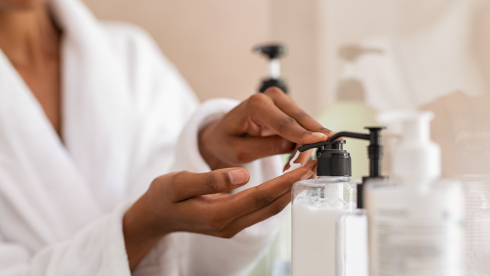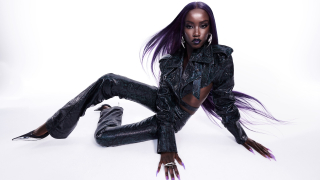“Well, if one really wishes to know how justice is administered in a country, one does not question the policemen, the lawyers, the judges, or the protected members of the middle class. One goes to the unprotected — those, precisely, who need the law's protection most! — and listens to their testimony. Ask any Mexican, any Puerto Rican, any black man, any poor person — ask the wretched how they fare in the halls of justice, and then you will know, not whether or not the country is just, but whether or not it has any love for justice, or any concept of it. It is certain, in any case, that ignorance, allied with power, is the most ferocious enemy justice can have.”
James Baldwin, No Name In The Street (1972)
It was not too long ago that I came across the results of a Pew Research survey that questioned the perception Blacks and Whites had of the Black experience in America. I can’t say that I was indignant or felt sadness upon reading the results. I love my country, but I was never infatuated with the thought of White Americans fully grasping and understanding the experience of their Black counterparts.
However, the study was still very interesting and able to finally put data to an overwhelmingly ignorant sentiment across the country. When asking both Whites and Blacks whether Blacks are treated less fairly in various situations, there is an average 35 percent difference in perception.
In dealing with the police, 70 percent of Blacks believe they are treated less fairly than Whites—just 37% of Whites surveyed believe the same. In public schools and on the job, there was a 36 and 38 percent difference, respectively. The biggest disconnect was the perceived way the judicial system treats the Black community. When asked what they thought about the way Blacks are treated “in the courts,” 68 percent of Blacks said “less fairly than Whites.” Only 27 percent of White respondents agreed.
So what does it mean for a country to not connect with the experiences of its Black people or understand how justice is currently distributed?
One thing I notice that seems to hold the moral demise of this country is America’s relationship (or lack thereof) with sensitive issues. Not just its growing sense of apathy and desensitization but the tendency of so many Americans to extenuate the country’s many age-old issues and actions based off of either the presence of a Black president, a bigger Black middle class, or the glitz, glamour, and perpetuation of the rich Negro in the media.
Upon President Obama’s election, there was an uncomfortable eagerness to castrate the country’s immoral history and current transgressions and replace it with a “post-racial” fairytale. Using Black progress to coat the way this country really interacts with its minorities is irresponsible.
Let’s take it issue by issue, shall we?
In dealing with the police, the Black community has always had an unfair and substantially different relationship to the men and women in uniform. Maybe it started in the 1800s when officers were used to enforce Jim Crow Laws, affirm the “separate but equal” status of Blacks, and beat Blacks in the streets in the name of white supremacy. Or maybe it was the mid 1900s when the FBI called Martin Luther King Jr. the “most dangerous negro” of the nation after his “I Have A Dream” speech. The parallels between the America of the past and the America today are still very-much relevant. The support of Stop and Frisk, which targets Blacks, and the killings of Sean Bell and Kendrick Johnson are just a few of the recent examples of police and officials treating Blacks less fairly than whites. The topic of concern is how white Americans seem not to notice or just ignore these truths.
If there was ever a more disguised disparity between the way Blacks and whites are treated, access to a proper education would be it. It is the lack of access to a “proper” education, one that prepares them for college and doesn’t slight them out of resources, that makes Blacks believe they are not treated fairly. The numbers say it all. For the last thirteen years, less and less white children have been going to public school. However, the total number of students has still been going up, thanks to minorities. This fact alone is not a bad thing, more educated Blacks and Latinos is great for the country. But when you look a little closer you find that when more Black children attend a high school, the teachers are less qualified. According to the National Center For Education’s Status and Trends report, high schools with more white students are more likely to have teachers who have actually majored in the subject matter and/or have been certified to teach it. Regardless of subject matter–math, science, or English–majority Qhite schools receive more investment. It is not enough to simply ship Black children off to school and not adequately prepare them.
It is this reason why so many people have equated the public school system to a shuttle service tasked with transitioning Black children into the prison and jail system. I’m not sure if I know any Black American that doesn’t know that Blacks are more likely to be incarcerated than Whites. As a group, whether male or female, Blacks over-index in state and federal prisons and local jails. For every 100,000 U.S. residents, there is six times as many Black inmates as there are white inmates. Why is this so when Blacks only account for 13 percent of the population? It is not a rare occurrence to have a Zimmerman case compared to a Marissa Alexander case and notice a clear and unfair difference in the application of the law.
All three of these topics hit close to home for the Black community, but what is it that White Americans still don’t–or want–to understand? Unfortunately, America is not the home where there is liberty and justice for all. Resources are given unequally and judgment is passed with supreme biases. The America that we all pledge allegiance to is an aspiration, not a reality. Of course we have made many strides, many of which make me proud to call myself an American. However, we are not there yet. The key legislative and judicial decision makers of our country are White Americans–87 percent. Our task must not be to make America feel what the Black person feels, but instead it must focus on uprooting assumptions of equality from the psyche of the American citizens. This is how we make necessary changes to the country. We are all Americans; we should all feel that we are treated fairly.












